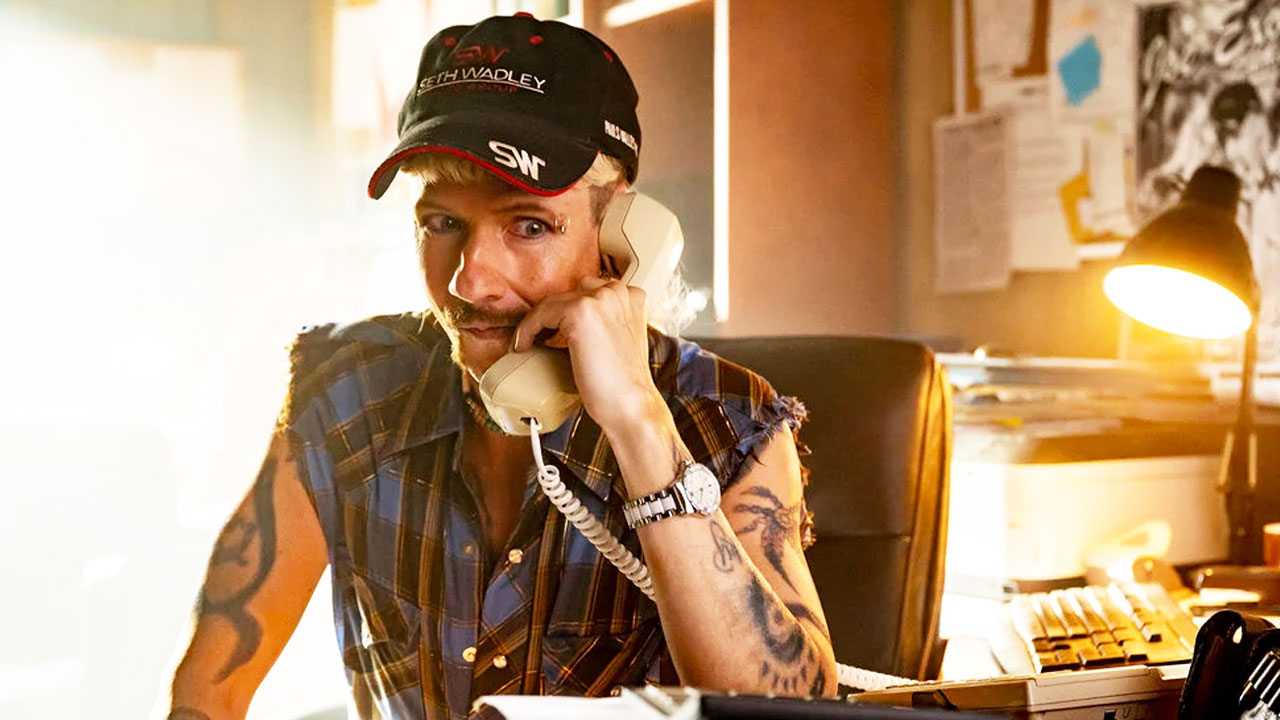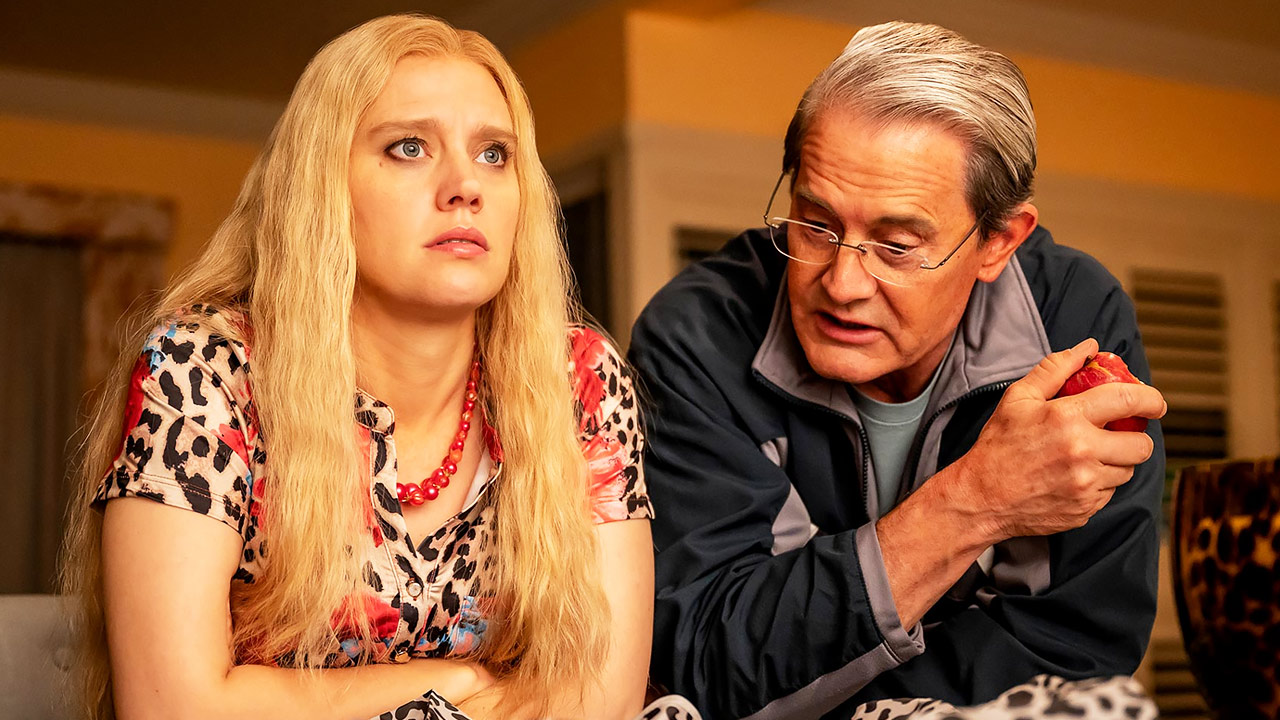Joe vs. Carole attempts to cash in a story we haven’t had time to get nostalgic about

Netflix’s hit series about tiger lovers is being flogged like a dead horse—the stories of Tiger King‘s Joe Exotic and Carole Baskin reheated in a bland new series, writes Luke Buckmaster.
Would anybody give a flying fig about the characters in Joe vs. Carole—particularly the eponymous leads—if Netflix’s smash-hit series Tiger King hadn’t stuck to the zeitgeist like mud to a blanket? The scrappily made true crime documentary about zoo owner Joe Exotic—a self-professed “gay, gun-carrying redneck with a mullet”—and his arch nemesis, animal rights activist Carole Baskin, seemed destined to be a flash in the pan success: a production that inexplicably pricked the public consciousness then got lost in the algorithms.
But a second season, other Tiger King docos and now a humdrum eight-part dramatization have turned what could—and probably should—have been a weird one-off hit into a quasi-franchise. Joe vs. Carole (which is technically based on a podcast) might have been described as “nostalgia-mongering” were it not reheating a narrative that made the rounds only two years ago. Rather than adding to the legend, creator Etan Frankel strips away the story’s stranger-than-fiction appeal by, well, fictionalizing it—all dramatizations being made up to varying degrees. Now we have a production that doesn’t feel stranger than…anything: certainly not the real story it was inspired by.
Episode one (this review encompasses the first four) begins with two police officers informing Baskin (Kate McKinnon) that a “hitman has been hired to murder you,” prompting her to wonder aloud how Joe Exotic (John Cameron Mitchell) could afford one. It then jumps back in time seven years, using the rote framing device of chasing a dramatic early reveal (here in the meek form of a mildly interesting dialogue exchange) with a “how did we get here?” rewind. Baskin spells out this structural choice from within the narrative world, literally asking “how did it come to this?”
When we see her going about her work at her non-profit sanctuary, Big Cat Rescue, I thought the show might take the Jaws approach: creating suspense by delaying reveal of the beast—which of course is Joe Exotic. Soon however Exotic appears on stage at a county fair, his arrival marked by fireworks crackling in the background. His act involves a tiger but the great feline is sick, and Exotic is told that “unless you can pull a tiger out of your ass, you’re screwed”—so in desperation he paints a sheep. The joke doesn’t land, and establishes Exotic as a bit of a charlatan—when we know from Tiger King that he’s the real deal.

John Cameron Mitchell’s performance gives Exotic a soft, almost droopy quality, searching the subject for tenderness and scaling back his eccentricities. Meanwhile Kate McKinnon—best-known for comedic portrayals—brings a more comic sensibility to Baskin. I expected this dynamic to be the other way around. There are certainly funny moments involving Exotic, though they’re funny weird rather than funny ha-ha, derived from the obvious place: his redneckery. When responding to a teary colleague reminiscing about his early troubled life, for instance, Exotic attempts to lift his spirits with emotional counseling Hunter S. Thompson style, asking: “wanna blow some shit up?”
A point inadvertently made by this rather vanilla series is that Tiger King’s success was connected to Joe Exotic’s gayness. Audiences long been conditioned to accept the trash-talking, rough-as-guts, violent yokel as a virile heterosexual alpha male—not a (condensing Exotic’s own words) gay redneck with a mullet. Exotic is not quietly gay; he doesn’t confine his sex life to the shadows. This alone makes his character interesting—though this interest is derived from a long history in the stereotyping of marginalized people rather than the writing and performance.
It’s tough to argue that this alone makes Joe vs. Carole worthwhile—particularly because we saw it straight from the horse’s mouth in Tiger King. The show’s failure to articulate why we should care about this loopy story is particularly conspicuous given the recent and far superior Pam & Tommy, which uses the theft of a sex tape to build a genre-blending cross-section of vantage points. It’s about wealth and( the more conventional kind of) porn; it’s an action-heist; it’s a time capsule of the 90s; it’s a comment on celebrity and the media industry; it’s a history lesson about the internet; and it comes alive—with vigour and verve.
Poor old Joe and Carol don’t get the Pam and Tommy treatment. Their narrativization is staid and sparkless—as well as a blatant attempt to cash in on a story we haven’t had time to feel nostalgic about.


















